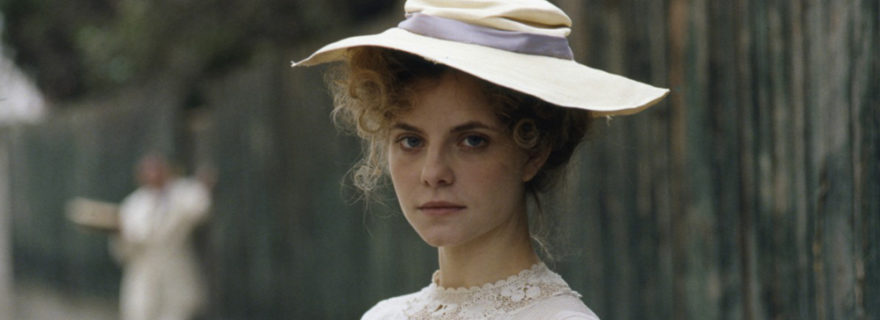Sunset
Movie Rating:
1
László Nemes is one of the most audacious filmmakers in international cinema. His sublime WWII drama Son of Saul powerfully demonstrated that film still plays a vital role in making sense of the nonsensical. With his latest, Sunset, Nemes turns his gaze to an earlier conflict, setting the stage for the first of the 20th Century’s great conflagrations.
We meet Irisz Leiter (Juli Jakab) trying on hats in a store that we soon learn has her moniker, having once been owned by her parents. She’s desperate to return, and manages (as she does throughout the film) to convince people to do things that they initially say they’re never going to do. When holed up at her former house, she uncovers a chest that contains a man’s hat and coat, some quotidian clothing that will play a major role as the film goes on.
What follows is meant to be an imaginative, allegorical look at the various factions during the late stages of the Austro-Hungarian empire. Unfortunately, despite Nemes’ intentions, we’re left with a visually rich, narratively atrocious film that eschews coherence and subtlety for repetition and drudgery.
It’s almost shocking at times how ham-fisted the storyline plays. Just how many times is Juli to be put into a room, only to wander off seconds later? It’s as if we’re watching some toddler being reasoned with, only to have them crawl away, the camera laconically following as faces come to interrupt and scold before leaving once again. There’s likely some art house drinking game that can be constructed where one douses every time we find the protagonist leaving a room or situation, only to return in order to leave shortly once again.
Despite the handsome aesthetic and some echoes to F.W. Murnau’s floating camerawork in Sunrise, the film offers little more than a load of dead end mysteries. Family drama, political intrigue and even the hint of aristocratic rambunctiousness feel less like an evocative mood piece than like someone forgot to put the pages back in order. The appalling end sequence tops it all, straining any credulity left.
Sunset is a fascinating case of ambitious filmmaking put to the test and coming up short. It reminds most of all just how the success of Nemes’ previous film was equally tenuous. The narrative flop here is so complete that it undercuts what are clearly committed performances and well-executed long takes, technical exemplars that may be enough for some viewers. Yet for those with eyes wide open, it’s easy to see that this folly founders the good will established by Nemes’ last movie, making one cautious that this lightning in a bottle may have well been an occurrence not easily replicated.





